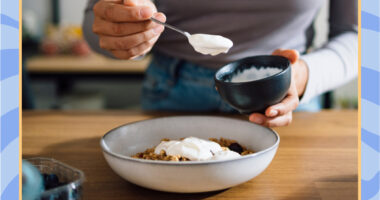While many of us started January determined to quit booze for an entire month, the everyday stresses of life may have caused some of us slip up and indulge in a sneaky tipple.
But it’s not all bad news for those of who have fallen off the wagon, because one expert has claimed that a booze-free month might not be the best approach to reducing your alcohol intake long-term anyway.
London-based alcohol abuse coach Sandra Parker, who runs Just The Tonic Coaching, believes that simply cutting alcohol out for a month is a ‘terrible idea’ if you’re keen to change your drinking habits.
While going alcohol-free for an entire month has undisputable benefits, Sandra believes there are more efficient ways of cutting back on booze over a longer period of time.


An alcohol abuse coach claims simply cutting alcohol out for a month is a ‘terrible idea’ if you’re keen to change your drinking habits in the long-term (stock image)
‘The only long-term solution to get control over alcohol without relying on willpower or feeling deprived is to examine the reasons why you are drinking,’ she said.
‘Most people are over drinking to self-medicate, to avoid uncomfortable emotions. Working with an expert will allow you to identify the subconscious beliefs about alcohol which are keeping you stuck and help you change them.
‘Ultimately resulting in a mindset shift where you no longer need alcohol, and instead can take it or leave it.
‘And that is a magical place to be, as zero desire for alcohol equals zero temptation and zero deprivation.’


London-based alcohol abuse coach Sandra Parker (pictured) runs Just The Tonic Coaching
Sandra moved to central London in her early twenties where she embarked on a successful corporate career and adopted a ‘work hard, play hard’ attitude, with most of her social events revolving around booze.
When she reached her 40s, Sandra wanted to pursue a healthier lifestyle and began exercising regularly, going to yoga classes and ditching processed foods.
Despite her efforts, Sandra still felt she wasn’t in control of her drinking and eventually, with the help of podcasts and online coaching sessions, managed to cut out drinking all together. in 2018.
She explained that during her youth she would often try and commit to Dry January, but would plan a huge night out on the 1st of February and never ended up making it to the end of the month booze-free.
‘When someone suggests doing ‘Dry January, if you are a regular drinker, chances are you will feel conflicted between wanting to cut down and the daunting prospect of getting through the whole of January, not exactly the happiest time of the year, alcohol-free. I can relate to this’, she said.
‘In my drinking days, I used to think Dry January was some form of sick torture invented by some killjoy to extract any residual pleasure from an already miserable month.
‘And there was no way anyone sane could get through the month without alcohol.
‘I never made it through the full month, and I always planned a big night out on 1st February- to celebrate January being over.
‘As a coach specialising in helping people drink less or not at all, this may seem odd but I actually think Dry January is a terrible idea.’
Sandra believes that totally cutting out alcohol for one month makes booze seem more unattainable, therefore you tend to want it more.
‘Because it reinforces the belief that you need to exercise superhuman willpower to resist alcohol and completely ignores the underlying reasons of why we feel the need to drink’, said Sandra.
‘Not only that it also makes alcohol seem like some sort of magic forbidden elixir, and most people can’t wait until January is over to drink again, often more than before.’
Research conducted by the University of Sussex has found that 70% of people tended to drink less six months after completing Dry January, as well as reporting boosted levels of wellbeing.
However Sandra disputes that Dry January automatically means you’re likely to drink less.
She cited research from Ian Hamilton, a lecturer in mental health and addiction at the University of York, who claims: ‘The millions of people who sign up to it are the millions of people who probably don’t have that great a problem with alcohol, so they find it relatively easy.’
In addition, she references Colin Drummond, professor of addiction psychiatry at King’s College London, who noted: ‘There has been remarkably little proper valuation of campaigns like Dry January,’ and that such initiatives are ‘blunt instruments’ that work best for lighter drinkers.
Sandra says that for heavy drinkers, cutting down on alcohol consumption will take time and usually expert help, and that often simply resisting your cravings for a month isn’t enough to help tackle problems longterm.
‘This is not an overnight process and for best results you need expert help. And it does require you to be willing to be vulnerable, to get clear on what is keeping you stuck.
‘But if you have been trying and failing to control alcohol on your own for a long time, and you have already given up on Dry January then this could be the solution you are looking for. ‘
Source:










